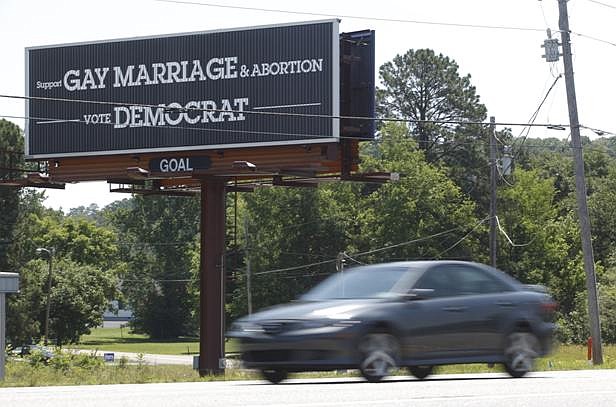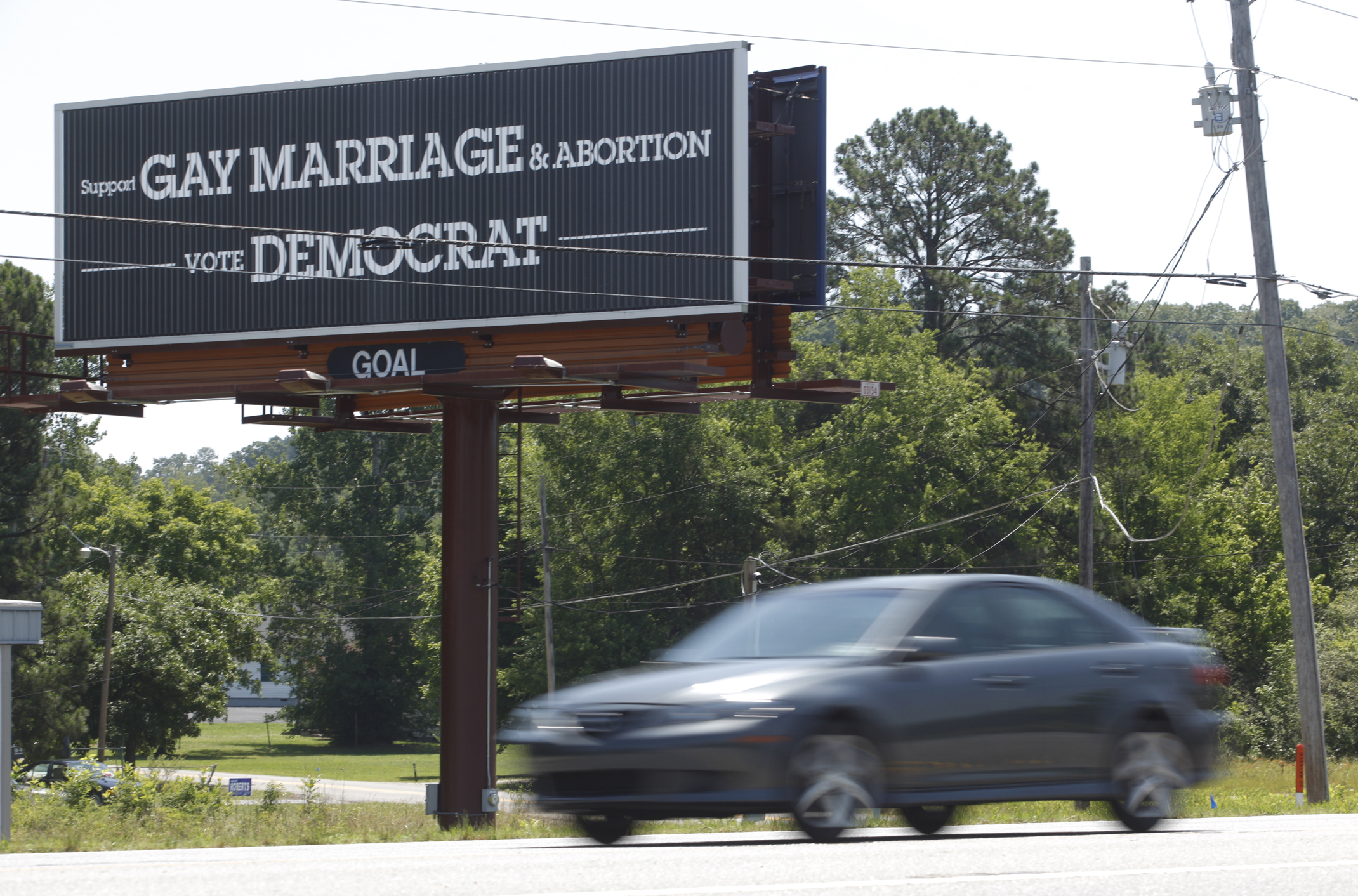When Catoosa County Sheriff Phil Summers retires at the end of the year, he will have held the office 22 years and been elected every time as a Democrat.
But in this year's sheriff's race, the five candidates seeking to replace Summers all are running on a Republican ticket, which is a trend in local elections across North Georgia.
Republican Party officials say North Georgia is one of the most conservative districts in the country. In an area once strictly blue, almost all local candidates are running red in the July 31 primary election.
No Democrats are on the ballot for local office in Catoosa County, Ga., for the first time in recent memory. Republicans dominate races in Dade, Walker and Whitfield counties, with only a couple of Democrats vying for local office in each of those counties.
Republican leaders see the switch as a benefit bolstering the party's strength in the state. But some local candidates say the new allegiance doesn't change anything for voters, because local candidates are elected based on their performance and loyalty in a community.
"The party line doesn't dictate the policies of the sheriff's office," said Walker County Sheriff Steve Wilson, who switched from Democrat to Republican last year.
Democratic leaders say the switch chips away at local party strength and makes it more difficult to build a core in an already conservative area.
"In our area, Republicans take us for granted and Democrats write us off," said Dade County Democratic Vice Chairman Tom McMahan.
Twenty years ago, you couldn't find a Republican candidate running in a statewide election, said Georgia Republican spokesman Chris Kelleher. But in the '90s the switch began.
McMahan, who also teaches U.S. history in Catoosa County Schools, said the transition was even slower on a local party level. Some candidates have just made the switch to Republican even though Southern rural areas moved in that direction years ago.
Several local candidates say they switched parties because their political beliefs are more aligned with the Republicans' now.
Dade County Sheriff Patrick Cannon ran as a Democrat when he beat Democratic incumbent Philip Street in 2004. Cannon said he was only thinking about how he could win, not about what party he aligned with.
Four years later, he ran as a Republican.
"It's more in line with what I believe as far as national politics go," Cannon said.
Catoosa County Coroner Vanita Hullander switched to the Republican Party this election after winning four times as a Democrat.
"I'm the same person I have always been," Hullander said. "The national [Democratic] party just seems to be moving away from the local party. I don't have anything negative to say about the local Democratic Party."
Dean Kelley, coordinator for the Northwest Georgia and Walker County tea parties, said people have made the switch because "the Democratic Party has gone too far to the left. It's gone too liberal."
"The Democratic Party in this part of the county is perceived as being socialist," he said.
Two billboards reflecting the gone-too-far sentiment appeared recently in Rock Spring in Walker County and Trenton in Dade County.
"Support gay marriage & abortion vote Democrat," state the two "trivision" billboards, which have rotating prisms that display three different messages.
The Times Free Press was unable to reach Chattanooga attorney David Hutton, who represents the woman who paid for the billboards. But Hutton told WTVC-TV Channel 9 that the billboards are coming down because the woman is rethinking her message, which was meant to be religious, not political, in nature.
But Democrats say the party hasn't gone too far left; if anything, it has moved more to the middle, and thinking like those billboards is just ignorance.
They say the switch in local politics was years in the making.
"The swing has been going on much longer" than President Barack Obama has been in office, McMahan said.
•••
Many candidates argue that party lines shouldn't be drawn on the local level.
"I don't understand why the coroner's office is a partisan position," Hullander said.
Walker County coordinator David Ashburn works for the county's sole commissioner, Bebe Heiskell, who made the transition from Democrat to Republican in 2000.
When he started working for Walker County 20 years ago, Ashburn said, it was all Democrat. Like the rest of the "solid South," Walker voters didn't want to support the Republicans, the party of Abraham Lincoln, he said.
"I'm really against the concept at the county level of even having Democrat and Republican," Ashburn said. "I'm neither. I vote for people."
"At the county level, the [parties'] platforms mean nothing. All we're trying to do is survive and deal with issues day to day," Ashburn said.
Whitfield County Sheriff Scott Chitwood agrees. He said law enforcement personnel don't need to claim a side. He is one of the few Democratic incumbent candidates in the area and said he declared his party based on family, not on how he runs the sheriff's office.
The tea party's Kelley doesn't agree.
"A lot of times, the only thing [voters] know about the candidates is which party they belong to," Kelley said. "They judge them based on whether they're Republican or Democrat."
•••
While Democrats may be down, they're not out.
Even in its diminished state, the party still can place candidates on the ballot. A candidate for local office in Georgia who tries to break free of the two-party system has to either run as an independent, which requires collecting signatures from 5 percent of registered voters, or conduct a write-in campaign.
"I don't know that we've had an independent qualify in our county," said John Campbell, Catoosa County elections custodian. A write-in candidate who ran in 2008 for County Commission didn't fare well, Campbell said.
Kelley doesn't mind that the tea party doesn't have local candidates on the ballot.
"What the tea party has done, we have become involved inside the Republican Party," he said. "A third party is a loser. The smarter thing to do is pick one party or the other and have influence over them."
Meanwhile, Democrats hope for a comeback and some said they already have seen more support from younger generations.
"It's going to be a slow process," to build up the party, McMahan said. "Politics tends to be generational and run in cycles. What I hope to see is a balance."

